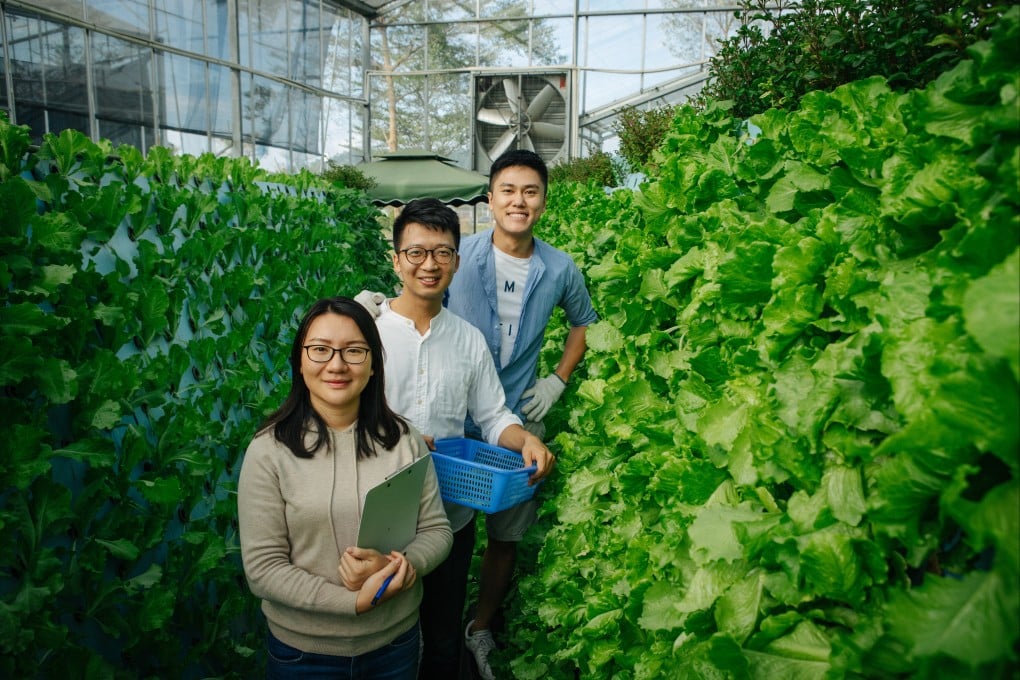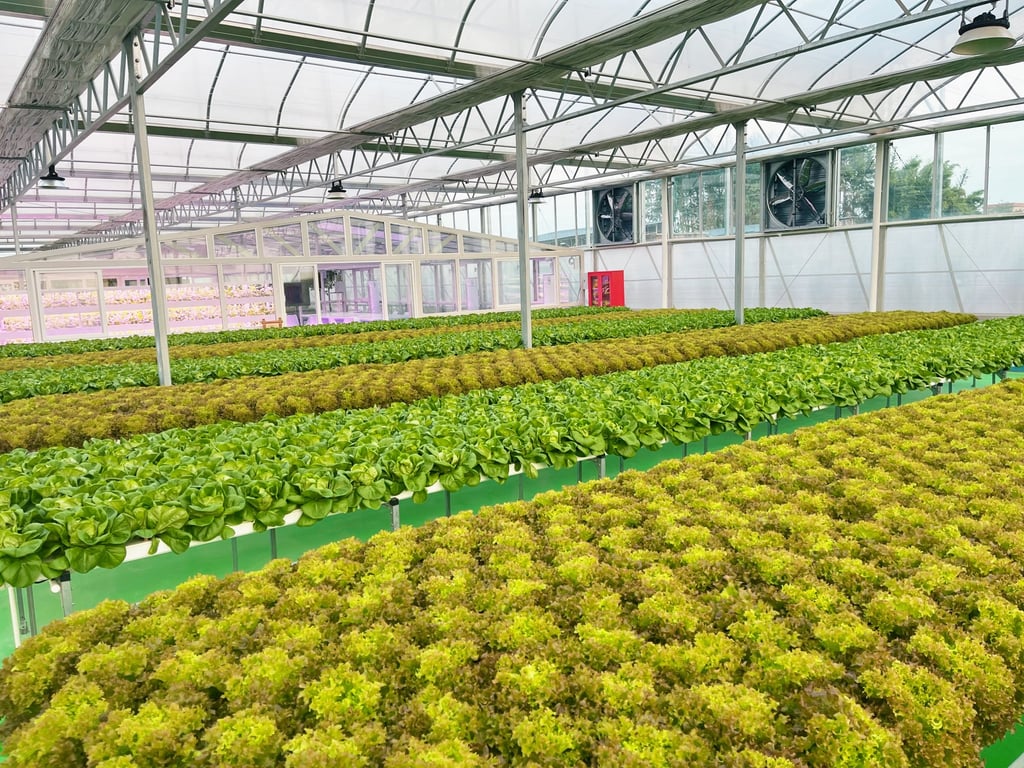Advertisement
How a group of Hong Kong university graduates turned an organic farming start-up in Greater Bay Area’s Jiangmen city profitable
- Guangdong Shining Farm, a sustainable agricultural start-up, grows vegetables and fish at their aquaponics facility in Jiangmen
- The company is now expanding their production capacity from nearly 400 tonnes of vegetables a year to 8,000 tonnes
Reading Time:3 minutes
Why you can trust SCMP
2

Hong Kong entrepreneurs are finding success across the border as they take advantage of opportunities in the Greater Bay Area.
Three university graduates from Hong Kong ventured into the Bay Area city of Jiangmen in 2016 to pursue their dream of becoming “modern farmers”, launching a sustainable agricultural start-up for growing organic vegetables and fish.
Within five years the start-up, Guangdong Shining Farm, has broken even and will be paying profit tax this year, according to co-founder Victor Lo.
Advertisement
“We wanted to find a new way of approaching agricultural production that was healthier and more environmentally friendly. But land is scarce in Hong Kong and there is not enough farmland,” said Lo.

After analysing opportunities in different Greater Bay Area cities, Lo and his co-founders Fung Leung and Mandy Tam, who were secondary school classmates in Hong Kong, settled on Jiangmen.
Advertisement
Advertisement
Select Voice
Choose your listening speed
Get through articles 2x faster
1.25x
250 WPM
Slow
Average
Fast
1.25x